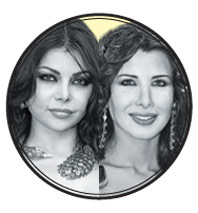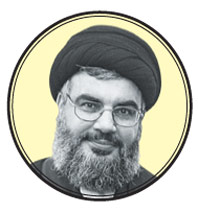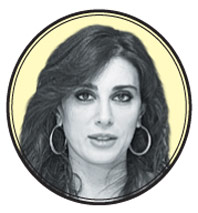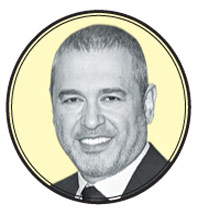Movers, Shakers, and Deal-Makers

Haifa and Nancy
These two share the Princess of Pop title in Lebanon. Now in her mid-thirties, long-reining Haifa Wehbe is a self-styled sexpot whose sultry looks have influenced a generation of young Lebanese women. But she’s had to make room for girl-next-door type Nancy Ajram, who is still in her twenties and whose album 7 was the top-selling release in the Arab world last year.

Hassan Nasrallah
The most powerful political figure in Lebanon holds no government office. But the leader of Shiite militant group and political party Hezbollah can topple a government with a word (as in 2011, when Hezbollah’s ministers and their allies withdrew from the cabinet) or take the city hostage when he feels his group’s power is being threatened (as in 2008).

Nadine Labaki
Lebanon’s most-talked-about filmmaker first captured attention when her Caramel, about the rocky love lives of Christian and Muslim women, set in a Beirut hair salon, competed at Cannes in 2007. Her most recent film, last year’s controversial Where Do We Go Now?, is a tragicomedy about a Christian-Muslim village on the verge of civil war.

Elie Saab
Where did Mila Kunis get that gauzy violet V-neck dress she wore to the Oscars last year? Who made Katy Perry’s gown for her wedding to Russell Brand? A cult designer in Lebanon since the eighties, Saab first caught the global spotlight when Halle Berry wore one of his creations as she accepted her Oscar for Best Actress in 2002.
“Christian or Muslim?”
It’s complicated.
Located in the region that gave birth to Christianity, Islam, Judaism, and a smorgasbord of subsects, Lebanon officially recognizes eighteen religious affiliations—many of them centuries-old enemies. The country also has an unusual power-sharing system that allocates the offices of president, prime minister, and parliament speaker to the three dominant groups: a Maronite Christian, Sunni Muslim, and Shia Muslim. “Those eighteen sects also translate into eighteen stances on marriage, divorce, inheritance, and even sex,” says Angie Nassar, a journalist for Now Lebanon. The rules can seem confusing to Westerners. Civil marriage is strictly forbidden, for example, but Shia law contains a provision for mutaa, or “temporary marriage,” which allows for religiously sanctioned sex without commitment. Progressive as the country may be in some ways, religion is still tricky, complicated ground and should be navigated with care.